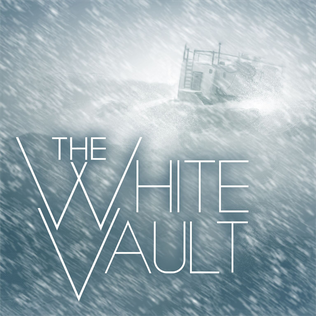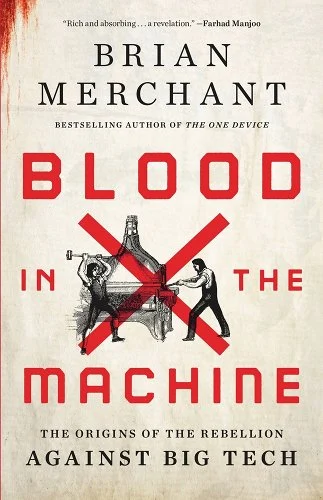A Pint at the Local
Here we are.
You're reading this email as the one of the newsletter's first subscribers. I suppose you could be reading this in the archives, years from now. If it's the second case, I hope I'm not dead yet.
If I am, don't tell me.
This newsletter exists because the collapse of X/Twitter is initiating yet another tempo change in social media.
I'm obsessed with tempo. People who've been on set with me have seen me start nodding, or even bouncing up and down slightly, as the scene falls into its natural meter. I firmly believe all our writing and rewriting and craft and trickery is, per Michelangelo, to see the angel in the blue pages and carve until you set it free.
There was a tempo to the early, circa 2004, Kung Fu Monkey blog years (this still haunts us here). That site started as a notepad for research and comedy writing bits. It evolved into a thriving screenwriting blog with monthly traffic in the hundreds of thousands. The pace felt conversational. One could, over a few weeks, build up enough momentum to get noticed by the world at large. Posts like the Crazification Factor or Atlas Shrugged/Lord of the Rings slowly spread until they became better known than the original blog. It was a nice balance between real time and asynchronicity. This was the era of the deep dive, where hobbyists and obsessives could find weekly 10,000 word posts exploring their shared rabbit holes.
Twitter, Instagram, etc, came to prominence with tempos matching their form. Subjects rose and fell within hours. Sure you could still do a deep dive on a subject, but in 45-post chunks. The thanks you'd get for that effort was seeing the work's relevance measured in a matter of minutes.
The upside to this critical mass was efficiency of community building. And yes, the form's value as a real-time news source/emergency coordination system can't be underestimated. But as these platforms devolve into morasses of disinformation, I'm not sure in the long run we'll look back and claim their benefits outweighed their costs. That ecosystem's now collapsing at a speed relative to its internal clock.
Intimate real-time awareness of the thoughts and actions of thousands of other people not in our direct physical presence -- something that not long ago would've been considered a Silver Age superpower -- became not just commonplace but a default. A default our sad little monkeybrains are still not wired for. As a stand-up comic, I've had 10,000 people hate me right to my face. That's not for the weak of heart or the untrained. Yet we made a machine that intermittently provides random humans a rough equivalent of that experience. Torment Nexus, etc, etc.
Which brings us here. Because yes, shouting as fast as possible as loudly as possible in the town square was fun for a decade or so but ... I'm tired. You're tired. Maybe it's time for hushed conversations in the pub again. A roster of 88,000 Twitter followers served their purposes. But a few hundred -- maybe a thousand if things go quite mad -- compatriots rather than followers is more what's needed as we ease into the Slow Apocalypse.
As usual, I've no idea what I'm doing. Eventually there'll be a paid tier. There'll be an email address to receive your questions and recommendations. We can still chat on Bluesky for an accelerated timeline of interaction. The tempo of this thing is once-a-weekish. A pint at the local.
It wouldn't do for the first email to be nothing but a wind-up, so let's tag that screenwriting base with our first tip. It's back where we started -- with tempo. The first wrench we'll pull from the workchest is: try to read everything you write aloud.
There's something about shifting the words outside our head, making ourself a spectator to our own thoughts, that helps us discover where we've fallen short. Is the opening of our romcom a pleasantly written but bog-solid, plodding page of description? Does our action scene hit the same beats over and over again or, worse, fail to evoke a sense of movement? Are the sentence lengths varied? Does that clever character description suddenly sound like kludgy first date joke? Do we only reference visual images, and never sounds (we'll get to this one in more detail later)? Are all our descriptions about space and never mention color? Is our cute intercut sequence woefully weighted to one side?
The first job of a script is never to be boring. We know what boring sounds like. We know when we're being boring. Trust those instincts.
Of course, this won't work for everyone. The first rule of all screenwriting blogs, books, articles and videos is: they all only contain two useful ideas, and it's never the same two ideas for any two writers.
Reviews and recommendations were also promised, so:
- The White Vault

While The Magnus Archives, the Black Tapes, and Welcome to Nightvale grabbed all the glory in the early days of horror/weird fiction podcasting, this little gem's the one that got its hooks into me for the long haul.
The White Vault is one of several titles produced by partners K.A. Statz and Travis Vengroff at their Fool & Scholar Productions. It stars an international voice actor cast in a slow burn, exquisitely well produced horror tale spanning multiple seasons and multiple continents, with deep environmental sound design. Those other hits -- Magnus, Nightvale, other podcast-y horrors -- as great as they are, still boil down to 1 to 3 people speaking directly into a microphone within the fictional conceit of ... 1 to 3 people speaking directly into a microphone. The White Vault manages to pull off a true found footage vibe, the audio sources ranging from phone calls and audio tracks from video feeds, to voice memos and text lifted from archival documents as read by the writer of the document.
It's tempting to use the word "Lovecraftian" for The White Vault's embrace of despair, the sense of humans colliding with Things They Are Not Equipped To Even Fucking Understand, Never Mind Survive. Laird Barron is probably the better comparison.
In the first arc, a small international team of scientists is sent to repair a technical survey station in Svalbard. They realize there's more to this place than they were told. There's more under this place than they were told. Then, they begin to face unpleasant questions about why they weren't told.
I've heard the difference between horror and terror described as:
Horror is when You see It.
Terror is when you realize that It sees You.
The White Vault expertly slaloms between both.
The worldbuilding's paced out very well over the five extant seasons. The show's now revealed enough mysteries that it's transitioning to a new style of storytelling, which I appreciate. Too many horror and thriller narratives drag out their reveals. Some were just teasing half-baked concepts in the first place, some knew that once the trick's been shown, the show's over. But The White Vault's got a bottom to it.
The production quality these creators achieve from a two person team is impressive as hell. I met them briefly at a con. They explained how they managed to put together a native-speaking multi-lingual voice actor cast by pillaging Reddit and other international voice actor forums, recruiting the native actors, getting them to record remotely, and then assembling the performances in their fucking garage. I may have just stared at them for ten seconds. Basically, these kids evoke one my favorite emotions, making me want to grab other people shake them, and scream "Tony Stark was able to build one of these in a CAVE with a BOX OF SCRAPS!"
You can grab the public feed of The White Vault wherever you acquire your podcasts. I strongly recommend supporting them on Patreon. Not only do you get the ad-free experience, there are mini-arcs that fill in the world. There's a new season dropping now, so it's perfect time to go back to the beginning, drink in the fun, and then keep listening.
- Society of Authors Online AI Symposium
Recently the UK Society of Authors held an online symposium addressing AI. They asked if the WGA could send someone to discuss the strike and how we dealt with AI in our demands. Although Deric Hughes deserves all the credit for starting the AI working group for the WGA, I wound up being the talking head on this particular panel. It's more from a general author's viewpoint, and definitely UK focused, but we cover a fair bit of territory. Bonus points: while I currently have a full beard, it's gone white only under my chin and on either end of my mustache, so in most Zoom lights I look like I'm rocking a white Amish neckbeard and a Hitler 'stash. Once you see it, you can't unsee it. You're welcome.
There is a podcast version on Spotify if you prefer.
Also, the book about the Luddites I referenced is Blood in the Machine by Brian Merchant, not Blood in the Water. Blame the 7am LA start time. Inhuman.

*********************
Thanks for swinging by, see you in a week or so.